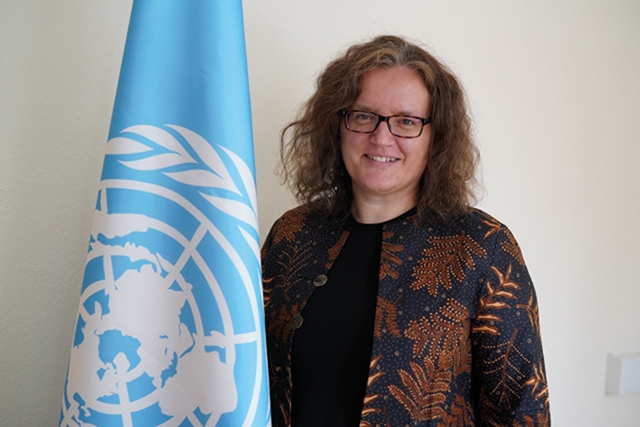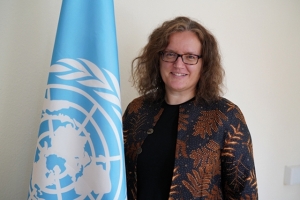Ending Violence Against Women
Violence against women and girls is a global scourge and unfortunately still one of the largest human rights violations worldwide. One in three women globally continues to suffer from abuses at home or in the workplace during her lifetime.
Despite the tremendous amount of resources and time invested in the prevention of Gender-Based Violence, women and girls continue to experience various forms of violence – from domestic violence to sexual harassment, from trafficking to early marriage and femicide – due to entrenched discriminatory social norms and traditions. In addition, survivors of violence often face social stigma, and victims are blamed as responsible for the violence they survived.
If we look at some of the statistics that concern Georgia, it becomes apparent that we need to join forces to urgently address this phenomenon. The 2018 National Study on Violence against Women in Georgia conducted jointly by the National Statistics Office GEOSTAT and UN Women with financial support from the EU, revealed that women and men show a high degree of tolerance and acceptance towards the use of physical violence against women in relationships, and share inequitable views on sex and sexual violence. Of those surveyed, almost one-fourth (22%) of women and one-third of men (31%) believe that beating of the wife is justified in certain circumstances. Furthermore, approximately one-quarter of women (23%) and 42% of the surveyed men believe that the wife should obey her husband even if she disagrees with him. Moreover, at least one out of seven women has experienced domestic violence and one out of five says they have experienced sexual harassment in their lifetime. Georgia also has one of the highest rates of child marriage among European States.
These official figures reveal only a small part of the picture because many women do not speak out or come forward. Trends of deep-routed public perceptions and clichés in relation to the role of women in private and public spheres persist and therefore gender-based violence remains shrouded in a culture of silence. Many people think that women should stay silent, no matter what, to protect their family name and dignity.
Dealing with violence against women means dealing with the underlying causes. Violence against women is partially the effect as well as the result of inequality between women and men – that is, the unequal distribution of power, resources and opportunities.
We consider women’s economic security as a key dimension of the GBV challenge. The World Bank recent findings point to the potential links between conflict, economic stress and GBV risk, as well as the value of economic security in women accessing support and GBV services. A more holistic response, including a focus on employment opportunities and economic independence, could help in addressing the challenge.
A comprehensive approach that includes laws along with decisive implementation to protect women and girls from violence could also help in tackling the problem. The provision of services must be accessible to all survivors, including medical and psychological support, housing and legal advice. And, above all a complex and comprehensive response that will tackle relevant areas like education, economic development, governance, and institutional arrangements in order to prevent violence from appearing in the first place.
The key is the prevention of violence from occurring and this needs to start at an early age. We can help instill a culture of zero tolerance towards violence in young people by creating awareness.
The 16 Days of Activism against Gender-Based Violence is such an awareness-raising campaign, which commences on 25 November, the International Day for the Elimination of Violence against Women and lasts until 10 December, Human Rights Day. Here in Georgia under the theme #Every WomanHasAStory we all have a chance to participate, to break the silence and stop the stigma.
Let us use the 16 Days of Activism to challenge attitudes that blame the woman, the victim.
Let us stand in solidarity with those who experienced violence and help women find their voices and speak out publicly. And let us work together to end violence against women once and for all. This is an indispensable precondition for development and for achieving the ambitious goal of leaving nobody behind.
By Sabine Machl, UN Resident Coordinator in Georgia











